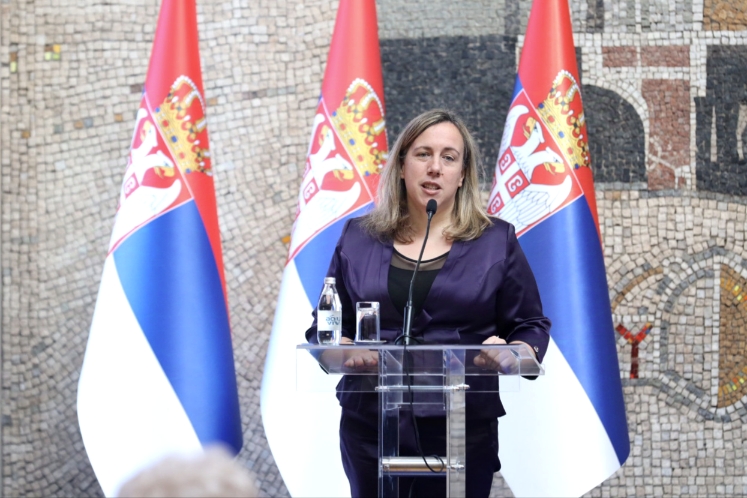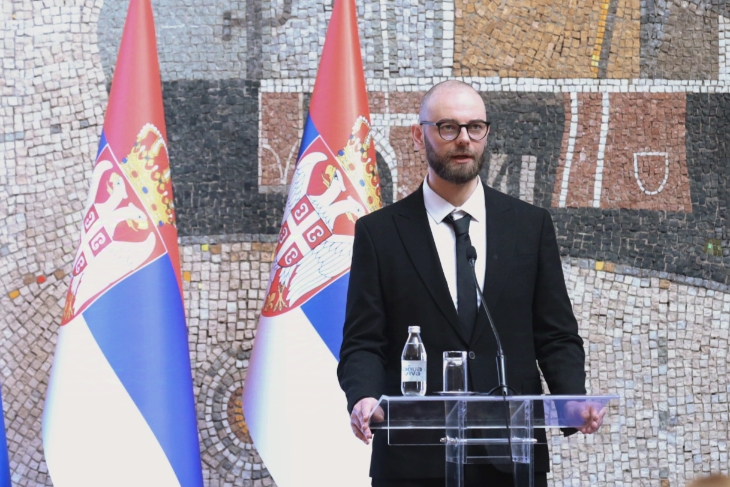Organ donation – the only chance for the lives of 2,000 people on the transplant lists
Since the beginning of the year, five families have granted consent for the donation of organs of their deceased family members, thus saving 22 lives. Owing to their decision, seven kidneys, four livers, three hearts, and eight corneas have been donated. Although there are about 2,000 people on the transplant lists, among whom 40 children, eight families refused to donate organs, missing the opportunity to permanently improve the quality of life of those waiting for a donor.
For more than eight years, the Ministry of Health of Serbia, Hemofarm Group, and Hemofarm Foundation, together with patient associations, have been conducting the campaign
‘The Most Important Call in Life’, aimed at increasing the number of donors, adopting the amendments and addenda to the Law on the Transplantation of Human Organs, as well as our country's membership in the 'Eurotransplant’ organization.
Aspiring to continue promoting the culture of donation also in 2025, the
Minister of Health in the Government of the Republic of Serbia Dr Zlatibor Lončar, and the Chief Executive Officer of Hemofarm Group Ronald Seeliger, presented Certificates of Appreciation to the families of organ donors who saved 44 lives in 2024. The Certificates of Appreciation were presented to the advocates of the campaign 'The Most Important Call in Life,' who bravely shared their personal stories to motivate the public towards humanity and solidarity with those waiting for a donor and transplantation. The Certificates of Appreciation were presented to: the Petronijević family, who made the decision to donate the organs of their deceased son, thus saving three lives; Zoran Dragišić, who donated the organs of his late wife and saved four lives; and Nikola Stanojević, who saved four lives by deciding to donate the organs of his deceased grandmother. In addition, the Certificates of Appreciation for promoting the culture of donation were also presented to Janoš Nađ, who donated the organs of his late brother, saving four lives, and Nataša Savković, who donated the organs of her deceased husband and saved one life.
‘I would like to extend my gratitude to all the members of the donor families. You are an inspiration to the entire country. I believe that your humanity will encourage people to become donors and families to accept to donate the organs of their loved ones. We have expert teams, state-of-the-art equipment and working conditions, in which we continue to invest. We also keep on educating the population on this topic, so that waiting lists for organ transplantation could completely disappear’, stated the
National Coordinator for Transplantation Dr Aleksandra Plećaš Đurić.
 ‘I am very proud to be part of this important initiative because organ donation saves lives and changes destinies. Although I know that it is difficult to think about donation in times of greatest sorrow, I remind you that for many people, transplantation is the only chance for life. That is why I invite you to embrace donation and to keep on, together with us, spreading the idea of humanity and solidarity,’
‘I am very proud to be part of this important initiative because organ donation saves lives and changes destinies. Although I know that it is difficult to think about donation in times of greatest sorrow, I remind you that for many people, transplantation is the only chance for life. That is why I invite you to embrace donation and to keep on, together with us, spreading the idea of humanity and solidarity,’ emphasized
Nikola Stanojević, a young man who gave consent for the organs of his deceased grandmother to be donated.

Serbia is at the bottom of Europe rankings in terms of the number of transplantations. To eliminate the transplant waiting lists, 10 donors per million population are required. In 2024, only 44 transplantations were performed in Serbia, while in the neighboring Croatia, that number was nearly 300. Although the campaign 'The Most Important Call in Life' is making progress, there is still a lack of broader social consensus about this charitable act, which is the only chance for life of 2,000 people and 40 children, who have no alternative.